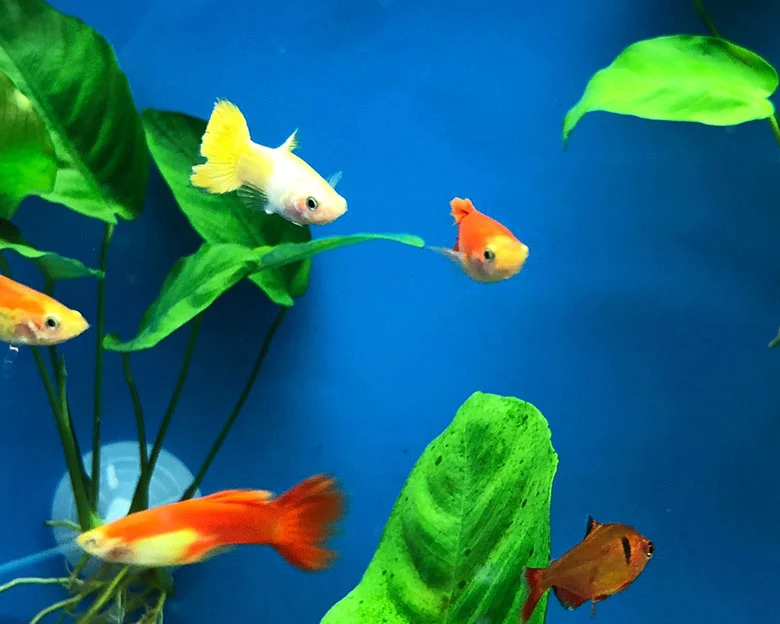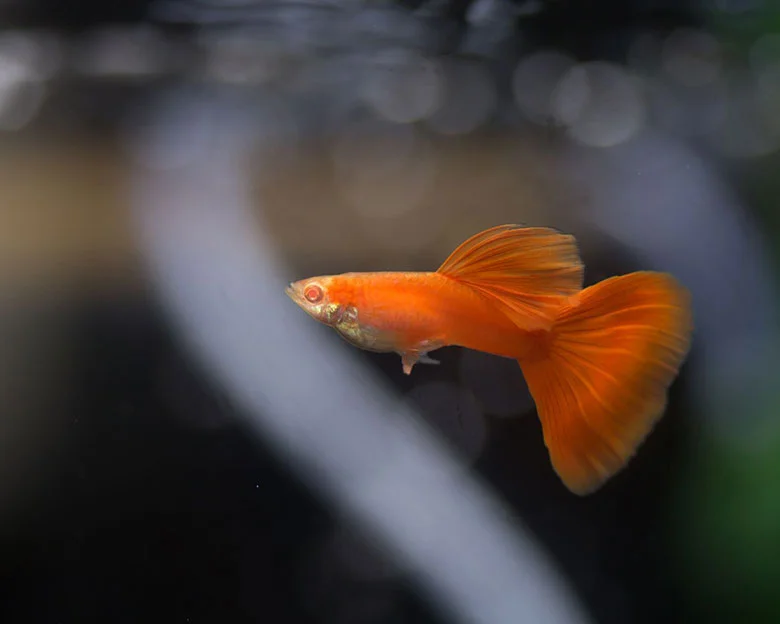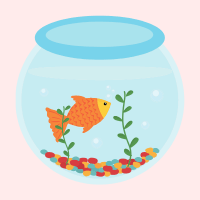Are you ready to dive into the vibrant world of orange guppies? These delightful fish are not just any ordinary aquatic creatures; they are the epitome of grace, beauty, and enthusiasm. Orange guppies, with their dazzling colors and playful personalities, are the perfect choice for those new to the world of fishkeeping.
But don’t be fooled by their charming appearance – these little swimmers require proper care and attention to thrive.
In this article, we will explore the fascinating world of orange guppies, uncovering their lifespan, care requirements, and much more. Discover their docile temperament and sociable nature as they gracefully swim in schools, showcasing their stunning fins. Learn about the ideal tank setup that provides them with ample space to explore and hide, ensuring their security.
Join us on this scientific journey as we delve into the intricate details of orange guppy care. From their varied diet to the necessary tank maintenance, we will guide you every step of the way.
So, get ready to embark on an adventure, and let’s unravel the secrets of orange guppies together!
Key Takeaways
- Orange guppies have a lifespan of up to 3 years and are great for first-time fishkeepers.
- They have a playful and docile temperament and enjoy swimming in schools and showing off their fins.
- Orange guppies require a minimum tank size of 10 gallons for a school of four fish and need hiding spaces and plants for security.
- They are compatible with most small, non-aggressive fish but not with predatory fish like angelfish and cichlids.
What are Orange Guppies?

Orange guppies are a popular choice for first-time fishkeepers due to their playful and docile temperament. These vibrant fish add a burst of color to any aquarium, making them an attractive option for those looking to enhance their tank’s aesthetic.
Orange guppies are known for their ability to coexist peacefully in community tanks, making them compatible with most small, non-aggressive fish. However, it’s important to note that they are not compatible with predatory fish like angelfish and cichlids. Have a German Blue Ram Cichlid? Check out our latest care guide.
These hardy fish have a lifespan of up to 3 years and require a minimum tank size of 10 gallons for a school of four fish. They enjoy swimming in schools and showing off their beautiful fins, so it’s crucial to provide them with plenty of space to swim and explore.
Lifespan and Characteristics
Enjoy the playful and docile temperament of orange guppies as they swim in schools and show off their fins. These vibrant fish are a delight to watch as they gracefully navigate through the water. Orange guppies have a natural curiosity and enjoy exploring their environment, making them a fascinating addition to any aquarium.
- Orange guppies are known for their social behavior, often swimming together in schools, creating a dynamic and lively display.
- Their vibrant orange coloration adds a beautiful pop of color to any tank, creating a visually striking focal point.
- These guppies have a playful nature and are often seen darting around the tank, showcasing their elegant fins.
- Orange guppies have a diverse diet, requiring a combination of commercial food, frozen foods, and plant matter to ensure their nutritional needs are met.
By understanding their behavior and providing a suitable diet, you can ensure that your orange guppies thrive and bring joy to your aquarium.
Tank Setup and Maintenance

To properly set up and maintain your tank for orange guppies, you should consider various factors such as tank size, water parameters, and the addition of suitable decorations and hiding spots.
Orange guppies require a minimum tank size of 10 gallons, providing them with plenty of space to swim and explore. When it comes to water parameters, it’s important to maintain a temperature range of 73-80 degrees Fahrenheit, a pH level between 6.5 and 8, and a hardness of 5-30 dGH.
Adding hiding spots, live plants, driftwood, rocks, and caves to the tank is beneficial for their security and well-being. Moreover, guppy tank decorations should be carefully chosen to ensure they’re safe and do not harm the fish. By maintaining proper water parameters and incorporating suitable decorations, you can create a comfortable and stimulating environment for your orange guppies.
Breeding and Offspring
When breeding orange guppies, it’s important to remember that the attractiveness of their offspring depends on luck and chance, which adds to the excitement and surprise of the process.
To maximize the chances of obtaining desirable offspring, there are various breeding techniques and genetic variations to consider.
- Cross-breeding: By selectively breeding guppies with different color genes and tail fin varieties, you can create unique and visually striking offspring.
- Selecting healthy parents: It’s recommended to choose guppies with good body color formation and overall health as parents. This increases the likelihood of producing healthy and vibrant offspring.
- Ratio and setup: When breeding, it’s advised to move pregnant guppies to a separate breeding tank with a ratio of one male to three females. The tank should also have a sponge filter and hiding places for the fry to thrive.
By understanding these breeding techniques and genetic variations, fishkeepers can enhance the beauty and diversity of their orange guppy offspring.
Frequently Asked Questions
Can Orange Guppies Change Color Over Time?
Yes, orange guppies can change color over time due to genetic factors. Guppy coloration is influenced by a variety of genes, and these genes can interact in different ways to produce different colors. As guppies age, their color patterns may change, intensify, or fade.
Additionally, environmental factors such as lighting and water conditions can also affect guppy coloration. It’s important to note that color changes can happen gradually and may vary among individual guppies.
How Often Should I Clean The Tank For Orange Guppies?
For orange guppies, it’s important to maintain a regular cleaning schedule for their tank to ensure their well-being. Cleaning frequency depends on the size of the tank, the number of fish, and the filtration system in place.
As a general guideline, it’s recommended to perform a 25 percent water change every week and clean the gravel once a month. This helps to remove waste, excess food, and other debris, maintaining good water quality and preventing health issues.
Regular tank maintenance is crucial for the overall health and happiness of your orange guppies.
Can Orange Guppies Live In A Community Tank With Other Fish Species?
Yes, orange guppies can live in a community tank with other fish species, as long as they’re small and non-aggressive. They’re compatible with most small fish that have a similar temperament. However, it’s important to avoid placing them with predatory fish like angelfish and cichlids. It’s recommended to provide plenty of hiding spaces and plants in the tank for the security of the guppies and their tank mates.
Are Orange Guppies Prone To Any Specific Diseases Or Health Issues?
Orange guppies, while generally hardy, can be prone to a few specific diseases and health issues. One common issue is fin rot, which can occur due to poor water conditions. Additionally, guppies may experience dropsy, a bacterial infection that requires immediate treatment.
Another concern is ich, a protozoan infection that can be treated with salt and medication. It’s important to regularly clean the tank and maintain proper water parameters to prevent these issues. Despite these potential problems, orange guppies are a beautiful addition to a community tank and can bring vibrant color to your aquarium.
What Is The Average Size Of Adult Orange Guppies?
Adult orange guppies have an average size of around 1.5 to 2 inches in length. Their growth rate can vary depending on factors such as diet, water conditions, and genetics.
To ensure optimal growth, it’s important to provide ideal tank conditions. This includes a minimum tank size of 10 gallons for a school of four fish, suitable water parameters, and a well-maintained environment.
By providing the right conditions, you can help your orange guppies thrive and reach their full size potential.

